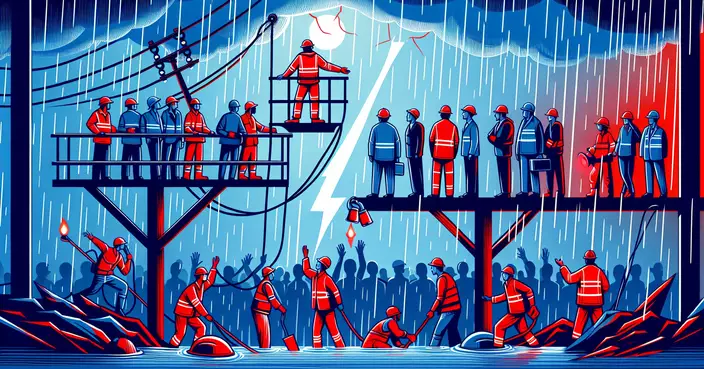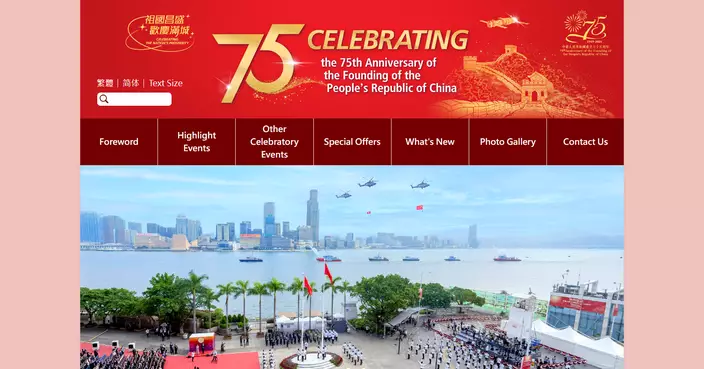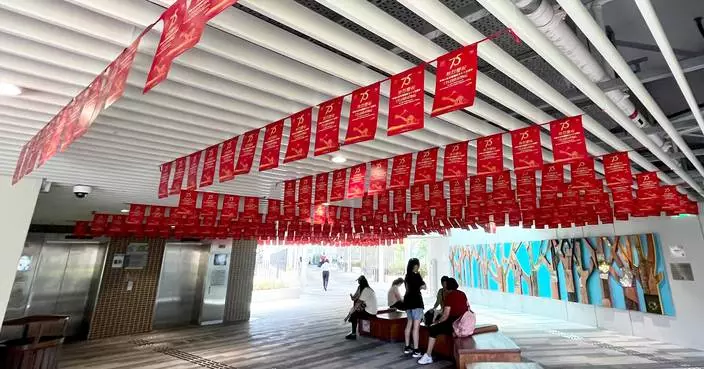Special traffic and transport arrangements in Chai Wan during Chung Yeung Festival
The Transport Department (TD) today (September 13) reminded members of the public that in anticipation of a large number of grave sweepers heading to the cemeteries along Cape Collinson Road in Chai Wan during the Chung Yeung Festival period, the following special traffic and transport arrangements will be implemented there to enable their visits to the cemeteries.
A. Special traffic arrangements
The section of Cape Collinson Road to the east of Lin Shing Road (i.e. the left-turning movement from Lin Shing Road to Cape Collinson Road leading to the Chinese Permanent Cemetery) will be temporarily designated as a private car and light goods vehicle prohibited zone from 7am to 3pm daily from September 21 to October 27. All private cars and light goods vehicles, except those with permits, will be prohibited from entering the prohibited zone.
In connection with the implementation of road closures at Cape Collinson Road and its vicinity by the Police, except for the exempted vehicles, Lin Shing Road and Cape Collinson Road will be closed to all vehicular traffic from 7am to 5pm on the specified dates.
Road closure arrangements
Dates
Exempted vehicles
Level 1 road closures
September 28, 29 and October 1, 5, 6, 12, 13, 19, 20
Franchised buses; green minibuses (GMBs) routes 16A, 16M, 16X and 18M; taxis; hearses; funeral vehicles; and vehicles with permits
Level 2 road closures
October 11
(Chung Yeung Festival)
Franchised buses; GMBs routes 16A, 16M, 16X; hearses; funeral vehicles; and vehicles with permits
B. Public transport services
Routes
Dates
Operating period
Citybus (CTB) Route 388 (Circular)
- between Chai Wan Station Bus Terminus and Chai Wan Cemeteries
September 22
10am to 2pm
September 28, 29 and October 1
9am to 2pm
October 5 and 6
9am to 4pm
October 11
(Chung Yeung Festival)
8am to 6pm
October 12 and 13
9am to 4pm
October 19 and 20
9am to 2pm
CTB Route 389 (Circular)
- between Shau Kei Wan Bus Terminus and Chai Wan Cemeteries
October 6
9am to 4pm
October 11
(Chung Yeung Festival)
8am to 6pm
October 12 and 13
9am to 4pm
During the Chung Yeung Festival period, adjustments to the extent of road closures, traffic control measures and public transport diversions will be made by the Police depending on the actual traffic conditions in the areas.
Grave sweepers are advised to plan their journey early and allow more travelling time. If they would like to go to the cemeteries along Cape Collinson Road in Chai Wan outside the above-mentioned road closure periods, they should use public transport services as far as possible. They can take GMB routes 16A, 16M, 16X or 18M at Chai Wan MTR Station to Cape Collinson Road, or take CTB Route 9 at Shau Kei Wan Bus Terminus to Shek O Road near Cape Collinson Road. Grave sweepers heading to the Cape Collinson-San Ha Columbarium may also make use of the escalators and pedestrian access route connecting San Ha Street in Chai Wan (near Chai Wan MTR Station Exit A) and the said columbarium.
The TD anticipates that the traffic in the vicinity of Cape Collinson Road, Lin Shing Road and Wan Tsui Road in Chai Wan will be busy. Motorists are advised not to drive to the congested and affected areas, and should exercise tolerance and patience in case of traffic congestion and observe the instruction given by the Police.
Members of the public are advised to be alert to the latest traffic news on radio and television. They may also visit the TD's website (www.td.gov.hk) or use the mobile application "HKeMobility" for the latest traffic and public transport information.

Source: AI-generated images








